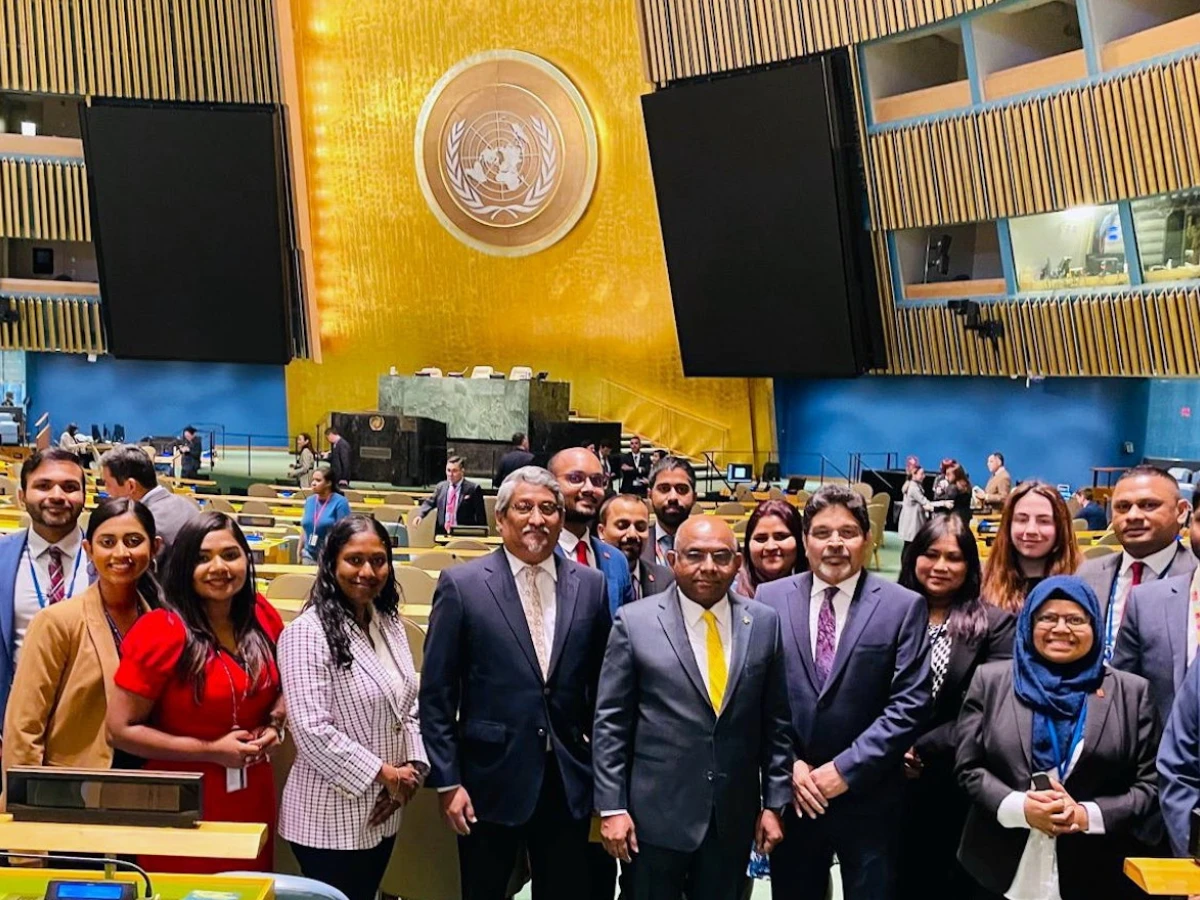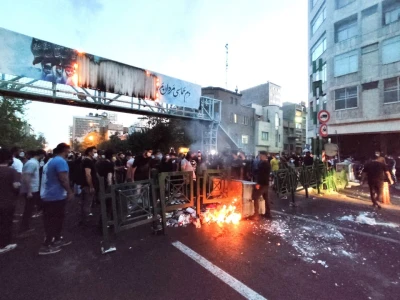
Maldives elected to serve on UN human rights body
The Maldives had previously served two consecutive terms on the UN human rights body, from 2011 to 2016.
By
Mariyam Umna Ismail
The UN General Assembly elected a dozen new countries including the Maldives on Thursday to serve on the Human Rights Council, while Germany and Sudan secured second terms.
After the ballots were cast and counted, Assembly President Csaba Kőrösi named Algeria, Bangladesh, Belgium, Chile, Costa Rica, Georgia, Kyrgyzstan, Maldives, Morocco, Romania, South Africa and Viet Nam to serve for three years, beginning 1 January.
South Korea and Venezuela, failed to be re-elected to the top human rights body, which is based at the UN in Geneva.
The Council, tasked with the responsibility to uphold and advance human rights globally, consists of 47 member States, elected via secret ballot by the majority of General Assembly members.
Their selection is based on equitable geographical distribution, and seats are distributed among regional groups of States from Africa (13); Asia-Pacific (13); Eastern European (6); Latin American and Caribbean (8); and Western European and others (7).
Breaking down how each of the successful candidates fared in relation to their competitors, Mr. Kőrösi announced that South Africa topped the voting for African nations, with 182 votes, followed by Algeria (178), Morocco (178), and Sudan (157).
Moving to Asia and the Pacific, Bangladesh secured 160 votes, followed by the Maldives (154), Viet Nam (145), Kyrgyzstan (126), Korea, (123); Afghanistan (12), Bahrain (1), Mongolia (1).
In Eastern Europe, Georgia secured 178 votes, Romania, 176; and Latin America and the Caribbean, saw Chile secure 144 votes, followed by Costa Rica (134) and Venezuela (88).
Finally, for the Western Europe grouping, Belgium received 169 votes, followed by Germany with 167, and San Marino (1).
Each Council member serves for a three-year period, eligible for one consecutive re-election term only, with the yearly membership cycle beginning on 1 January.
Following the announcement, Maldivian President Ibrahim Mohamed Solih said human rights and the fundamental equality and freedom of all are core aspects of the Maldives' democracy.
"Which is why Maldives is extremely proud to have won a seat on the UN HRC for 2023-2025. Congratulations to @abdulla_shahid and the entire team at #TeamKhaarijee (@MoFAmv)," the president's tweet read.
Foreign minister Abdulla Shahid said the international community has once again demonstrated its trust in President Solih's "robust foreign policy", and confidence in the Maldives' national efforts to promote and protect human rights.
"Our membership at UN HRC will be guided by the core pillars of our foreign policy – human rights, democracy and good governance, and climate action," he said.
"We will be guided by the principles of the United Nations Charter and the Universal Declaration of Human Rights."
The Maldives had previously served two consecutive terms on the UN human rights body, from 2011 to 2016.
The full membership of the current Council is Argentina, Armenia, Benin, Bolivia, Brazil, Cameroon, China, Côte d’Ivoire, Cuba, Czech Republic, Eritrea, Finland, France, Gabon, Gambia, Germany, Honduras, India, Indonesia, Japan, Kazakhstan, Libya, Lithuania, Luxembourg, Malawi, Malaysia, Marshall Islands, Mauritania, Mexico, Montenegro, Namibia, Nepal, Netherlands, Pakistan, Paraguay, Poland, Qatar, Republic of Korea, Russia, Senegal, Somalia, Sudan, Ukraine, United Arab Emirates, United Kingdom, United States, Uzbekistan, and Venezuela.
On 6 December 2021, Federico Villegas of Argentina was elected president for 2022.
Related
Related

Angelina Jolie leaves U.N. refugee agency after more than 20 year

U.N. rights council votes to probe Iran's ongoing crackdown

Shauna appointed to UN Ocean Decade Advisory Board

